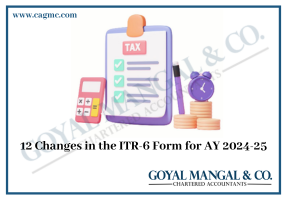
Too many concerns surround the topic of NRO to NRE Fund Transfer, adding to NRIs’ concern. The notion of NRO to NRE Transfer necessitates familiarity with both of these NRI Banking Accounts in particular, as well as an awareness of the underlying elements related with the fund management of these accounts. In this article we’ll try to find out the answer for the question How to repatriate amount from NRO to NRE account?
Before finding the solution for How to repatriate amount from NRO to NRE account? It is important to have an understanding of the Non-Resident Ordinary (NRO) and Non-Resident External (NRE) accounts.
|
Table of Content |
Overview of NRO Account
Non-Resident Ordinary (NRO) accounts allow you to handle Indian rupee income sources such as rent, dividends, or profit earned from an investment or property sale in India. Non-resident and resident Indians can both have joint accounts here. You can also get income in any currency, Indian or international, through the account.
An NRO account, on the other hand, may only be withdrawn in Indian rupees. The funds in an NRO account are not readily repatriable to any other currency or nation because they are generally utilized for income/profit earned in India. The interest earned in this account is taxed as well. Further, the NRO account can be created with the aim of retaining income obtained in India, such as rent, pension, and so on. The money in the account can be repatriation up to a limit of one million USD every fiscal year. Please keep in mind that a 30% tax + surcharge + education cess would be deducted at the source of interest generated in India.
Overview of NRE Account
The NRE account is a rupee-denominated account in India that provides total protection. These accounts may be savings, current, recurring, or fixed deposits. The foreign money that you deposit into the account is converted to Indian rupees (INR). You can transfer cash (principal and interest) from an NRE account to a foreign account without any hassles or limits. It is important to remember that the funds deposited into these accounts must have been earned outside of India. The worldwide debit card allows you to transact and withdraw money 24 hours a day, seven days a week. In addition, if you link your NRE account number to the investing account, mutual fund investments would become simple and fast. NRE accounts are largely utilised for doing business, personal banking, and investing in India.
Advantages of NRO/NRE Accounts for NRIs
The following are the advantages of NRO/NRE Accounts for NRI:
Benefits of NRO Accounts
- Retain the money earned in India from sources such as pensions, rental income, and so on without any difficulty.
- Earn interest on funds in the account of up to 7.30%
- Invest in possibilities such as mutual funds, initial public offerings (IPOs), and so on.
- Connect your NRO account to your PIS account and trade in Indian equities.
- An Easy Banking Experience
Benefits of NRE Accounts
- Invest money earned overseas and get tax-free interest of up to 7.81 percent.
- Withdrawals are available 24 hours a day, seven days a week using International Debit Cards.
- Invest in possibilities such as mutual funds, initial public offerings (IPOs), and so on.
- Connect your NRE account to your PIS account and trade in Indian equities.
- An Easy Banking Experience.
- Freely and fully repatriate cash from overseas.
Difference between NRO and NRE Accounts
The following are the difference between NRO and NRE:
- An NRE account is a bank account created in India in an NRI’s name to park his overseas earnings, whereas an NRO account is a bank account opened in India in an NRI’s name to manage his income generated in India. These sources of income include rent, dividends, pensions, interest, and so on.
- Taxation does not apply to NRE accounts. The balance of these accounts, as well as the interest collected on them, is not taxed. The interest received on an NRO account, however, is taxed at 30% under the Income Tax Act, 1961.
- Outside-of-India income can be placed into any of these accounts. Income earned in India, on the other hand, may only be put into an NRO account. Withdrawals from both accounts may only be done in INR.
- In the case of an NRO account, if both the deposit and withdrawal are done in INR, there is no exchange rate risk; in the case of an NRE account, currency fluctuations expose you to exchange rate risks.
- An NRI can create a joint NRO account with one or more Indian nationals or NRIs. A combined NRE account, on the other hand, may only be opened with another NRI.
Is it permissible to transfer funds from an NRO account to an NRE account?
The Reserve Bank of India permits the transfer of funds from an NRO to an NRE account of up to USD 1 million per year.
NRI’s in India manage their costs using two accounts: the Non Resident External (NRE) account and the Non Resident Ordinary (NRO) account. The NRE account is intended for the transfer of overseas profits to India. NRO accounts, on the other hand, are used to handle money received in India.
How to repatriate amount from NRO to NRE account?
How can I transfer funds to my NRE account? Or, how can I transfer money from the United States to an NRE account?
These are prevalent concerns among NRIs. There are various methods for transferring funds to an NRE account from overseas. The funds are held in Indian rupees.
Another issue you may have is if you may deposit money into an NRE account from India?
In India, one cannot transfer funds from a savings account to an NRE account. You can, however, transfer funds from your NRO account to your NRE account. You can also transfer funds between NRE accounts.
- Announcement of RBI: The Reserve Bank of India (RBI) approved cash transfers from NRO to NRE accounts on May 7, 2012, subject to certain criteria. This was not permissible before to 2012. In a fiscal year, the maximum amount of money that may be moved is USD 1 million.
- Payment of Taxes: The interest on NRO accounts is taxed. Interest earned on NRE accounts, on the other hand, is tax-free. As a result, it is critical to pay all applicable taxes before transferring cash from an NRO to an NRE account.
- Requirement of Document: The following documents are necessary to transfer money from an NRO account to an NRE account.
- Signed cheque/letter for transfer of monies from NRO to NRE savings -account.
- FEMA issued a statement. According to the terms of the FEMA law, this is a document stating that you are eligible to transfer funds from an NRO to an NRE account.
- Documentary proof of funding source.
- Filing of Form 15CA and 15CB: You need to fill out Forms 15CA and 15CB. A chartered accountant must be contacted to get Form 15CB. This identifies the source of your finances. Form 15CA is available for completion online.The steps for completing form 15CA are as follows:
- Go to the Income Tax India website, www.incometaxindiaefiling.gov.in, and sign in.
- Enter your PAN (User ID) and password.
- After logging in, select the ‘E-file- Prepare and Submit Online Form (Other than ITR)’ option.
- Click on Form 15CA
- You will find instructions for completing the form.
- The form is split into four sections: Part A, Part B, Part C, and Part D.
- Fill in the blanks with the information that applies to you.
- After you have completed the form, please validate and submit it.
- Print the form by clicking on it. Take a hard copy of the acknowledgment slip as well.
- Sign the completed form and return it to the bank in duplicate.
Endnote
NRO account can be formed to keep the money generated in India, such as rent, pension, or interest. However, TDS must be deducted at the source of interest earned in India, and other income is also taxable under the Income Tax Act, 1961. As a result, funds from an NRO account are not readily repatriable.







